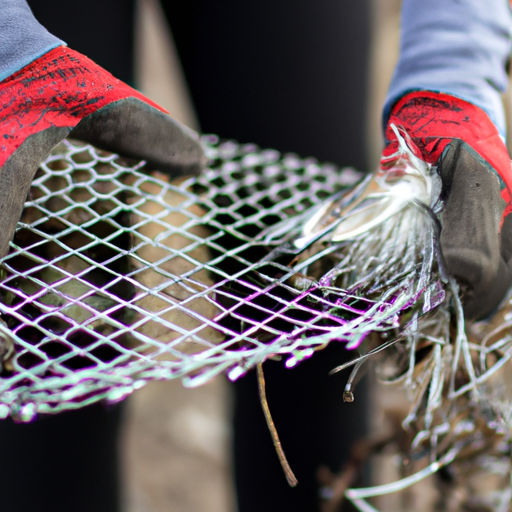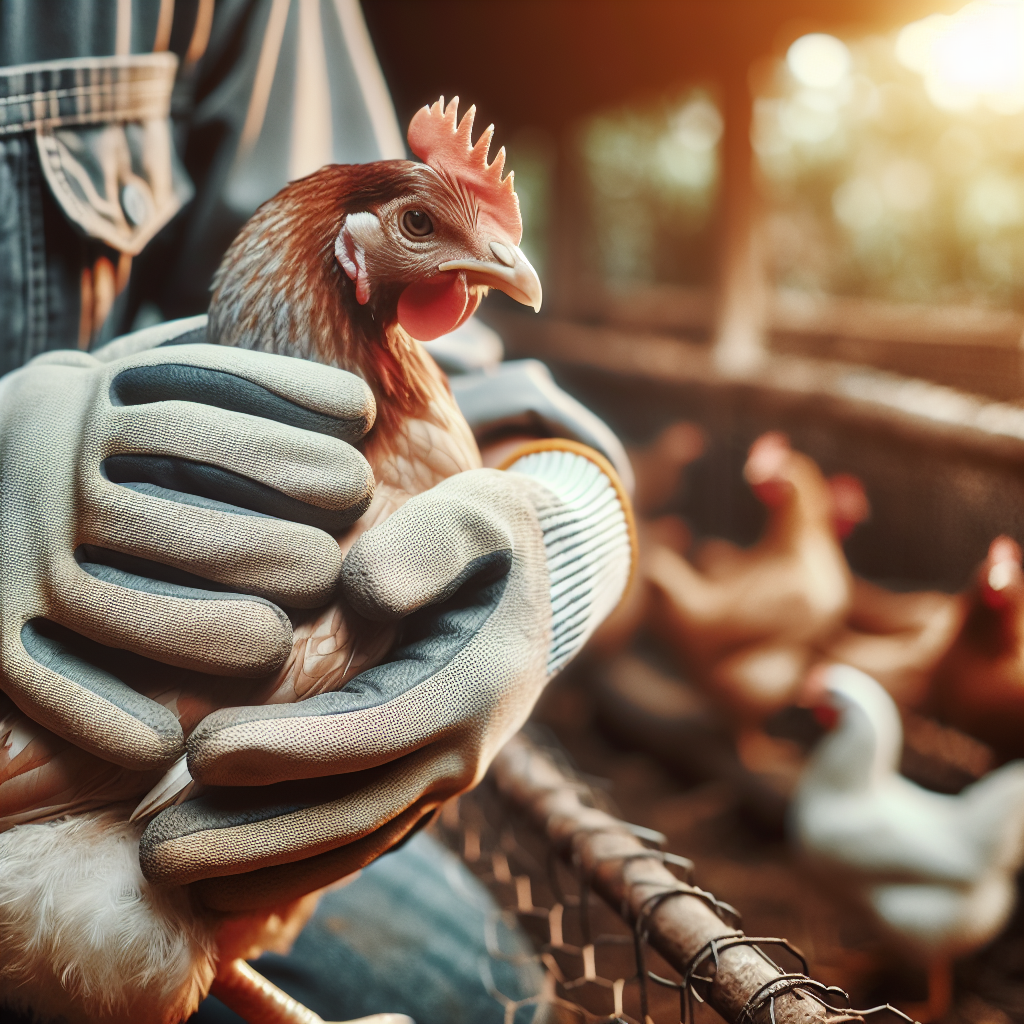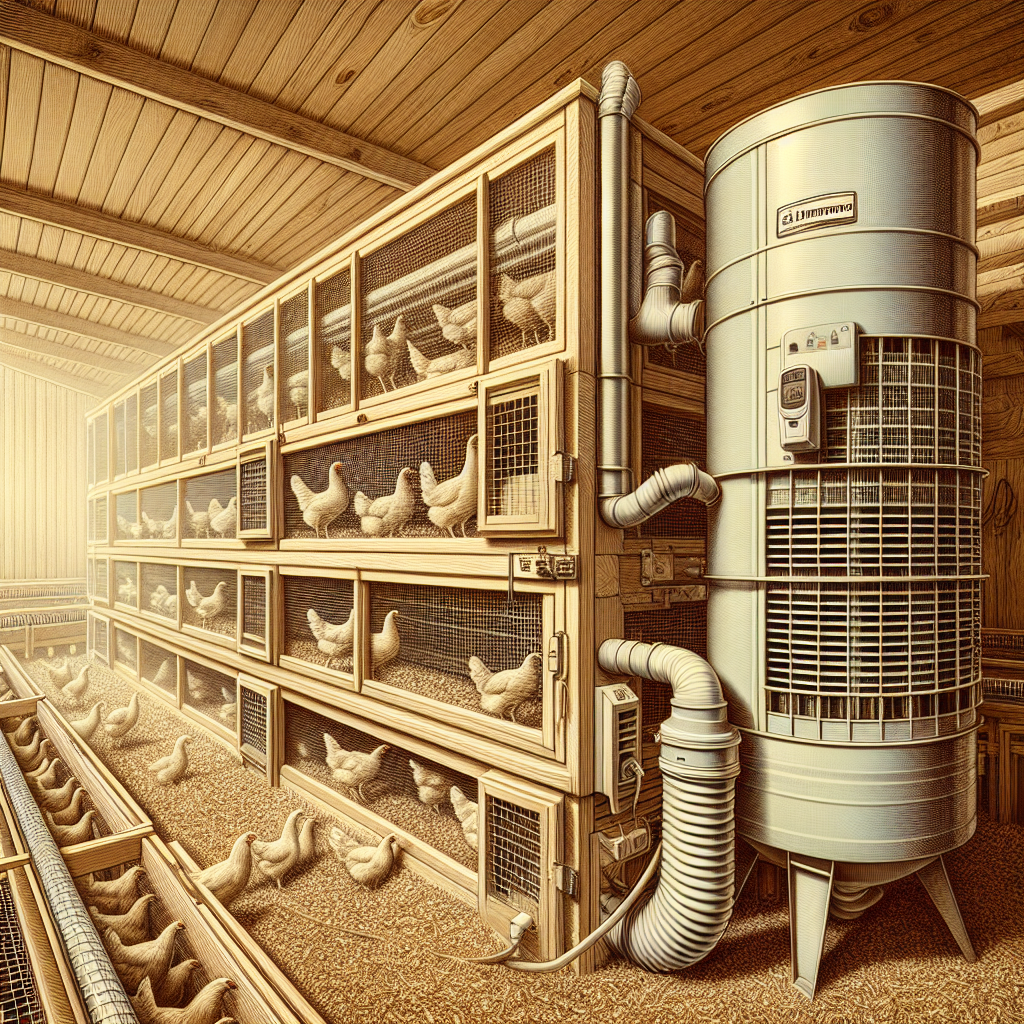In this article, we’ll explore whether chicken coops require unique seasonal maintenance tasks. If you’re a chicken owner or considering getting chickens, it’s essential to understand the specific care and upkeep needed for their coop throughout the year. From ensuring their comfort during hot summers to protecting them from harsh winters, let’s discover the seasonal tasks that will keep your feathered friends happy and healthy.
Spring
Inspecting and Repairing Chicken Wire
In the spring, it is essential to inspect the chicken wire around your coop to ensure that there are no holes or gaps that could allow predators to enter. Take the time to carefully inspect every inch of the wire, checking for any signs of damage or wear. If you find any holes or gaps, it is crucial to repair them promptly. Patching up any damaged areas will help keep your chickens safe from potential predators and ensure their security.
Cleaning and Disinfecting the Coop
Spring is the perfect time to give your chicken coop a thorough cleaning and disinfection. As the weather warms up, bacteria and pathogens can multiply quickly, posing a risk to the health of your flock. Start by removing all the old bedding and scrubbing the coop walls, floor, and nesting boxes. Use a safe disinfectant recommended for poultry housing to kill any remaining bacteria or parasites. Once the coop is cleaned and disinfected, allow it to dry thoroughly before adding fresh bedding.
Replacing Bedding Material
With spring comes the opportunity to replace the bedding material in your chicken coop. The old bedding may have become soiled or filled with droppings over the winter months, and spring is the perfect time to refresh it. Remove all the old bedding and replace it with fresh, clean material. Popular bedding options for chickens include straw, wood shavings, and shredded paper. Providing clean and comfortable bedding will not only improve your chickens’ health and well-being but also help maintain a clean and odor-free coop.
Preparing for Chickens’ Arrival
If you plan to introduce new chickens to your flock in the spring, it is essential to prepare the coop beforehand. Ensure that you have enough space to accommodate the new additions comfortably. Consider installing additional perches and nesting boxes if needed. It is also a good idea to separate the new chickens from the existing ones initially to prevent any potential conflicts or disease transmission. By preparing the coop in advance and taking necessary precautions, you can make the transition for your new chickens smooth and safe.
Summer
Ensuring Proper Ventilation
During the summer months, it is crucial to maintain proper ventilation in your chicken coop. Chickens are susceptible to heat stress, which can lead to health problems or even death. Check for adequate ventilation to ensure a constant flow of fresh air, preventing the buildup of heat and humidity. Install additional windows, vents, or fans if necessary to improve air circulation. Proper ventilation will help keep the chickens cool and reduce the risk of heat-related issues.
Monitoring and Controlling Temperature
In addition to ensuring proper ventilation, monitoring and controlling the temperature within the coop is vital during the summer. Consider installing a thermometer to accurately gauge the temperature. If the temperature rises too high, you can take steps to cool down the coop. This can include providing shade by using tarps or installing shade cloth, as well as placing frozen water bottles or ice packs in the coop for the chickens to lean against. Maintain a comfortable temperature range to keep your chickens healthy and happy.
Providing Shade and Water
Offering shade is essential to protect your chickens from the scorching summer sun. Make sure there are shaded areas within the coop or provide shade by using tarps or shade cloth outside. This will help keep the temperature inside the coop cooler and prevent heat stress. Along with shade, always ensure a constant supply of fresh, clean water for your chickens. Water helps regulate their body temperature and keeps them hydrated during the hot summer months. Check the water source frequently, and clean or refill it as needed to ensure your chickens have access to cool, clean water at all times.
Regular Cleaning and Removal of Waste
Summer is a time when waste can accumulate quickly in the chicken coop, leading to unpleasant odors and the potential for disease. Regular cleaning and removal of waste are essential to maintain a healthy and clean environment for your chickens. Clean the coop at least once a week, removing any soiled bedding, droppings, or debris. Keeping the coop clean will help prevent the spread of bacteria and parasites, ensuring the well-being of your flock.
Fall
Fall Cleaning and Coop Preparation
As autumn approaches, it is time for fall cleaning and coop preparation. Start by thoroughly cleaning the coop, removing any remaining traces of summer dust and debris. Pay close attention to the corners, crevices, and nesting boxes, as these areas often accumulate dirt and pests. Once the coop is clean, make necessary repairs, ensuring that all doors, windows, and vents are in good working condition. Fall cleaning and preparation will help create a clean and secure environment for your chickens as the colder months approach.
Performing Structural Maintenance
Fall is the ideal time to perform any necessary structural maintenance on your chicken coop. Check for any signs of wear or damage to the coop’s structure, such as loose boards, cracks, or holes. Repair or replace any damaged areas to ensure the coop is structurally sound and can withstand the upcoming winter weather. Proper structural maintenance will not only keep your chickens safe but also extend the life of your coop.
Protecting against Cold Weather
With the arrival of fall and winter, it is crucial to protect your chickens from the cold weather. Insulate the coop to help retain heat and maintain a comfortable temperature. Cover any windows or vents with plastic or insulation material to prevent drafts while still allowing for proper ventilation. Provide additional bedding to keep your chickens warm during cold nights. Consider using materials such as straw or hay that provide insulation. Protecting your chickens from the cold will help prevent frostbite and keep them healthy and comfortable.
Inspecting and Repairing Watering Systems
Fall is an excellent time to inspect and repair any watering systems in your chicken coop. Check for leaks, cracks, or clogs in water lines, nipples, or water dispensers. Make any necessary repairs or replacements to ensure a constant supply of fresh water throughout the winter months. Properly functioning watering systems are essential for your chickens’ health and well-being, as they rely on hydration to regulate their body temperature.
Winter
Ensuring Warmth and Insulation
Keeping your chickens warm and comfortable during the winter months is crucial. Insulate the coop with materials such as straw, hay, or insulating blankets. Pay close attention to areas where drafts may enter, such as windows, doors, or ventilation openings. Seal any gaps or cracks to prevent cold air from entering the coop. Hanging curtains or blankets over the coop entrance can help retain heat. Ensuring warmth and proper insulation will help your chickens stay cozy and protected from the cold.
Protecting against Frostbite
Frostbite is a common wintertime issue for chickens, particularly in their combs, wattles, and feet. Take measures to protect your chickens from frostbite by applying petroleum jelly to vulnerable areas. This creates a barrier against the cold and helps prevent frostbite. Monitor the chickens regularly for any signs of frostbite, such as discolored or swollen tissues, and take immediate action if necessary. Proper protection against frostbite will keep your chickens healthy and comfortable throughout the winter.
Providing Ample Food and Water
During the winter months, it is essential to provide your chickens with ample food and water. Cold weather increases their energy requirements and their need for hydration. Ensure a constant supply of fresh, high-quality feed, including grains and high-energy treats. Consider offering warm water to prevent it from freezing quickly. Insulated water containers or heated waterers can help ensure that your chickens have access to clean, unfrozen water. Providing sufficient food and water is essential to sustain your chickens’ health and well-being during the winter.
Maintaining Proper Lighting
With shorter daylight hours during winter, it is important to maintain proper lighting inside the chicken coop. Chickens require a minimum of 14-16 hours of light per day to continue laying eggs consistently. Supplement the natural light with artificial lighting to meet their needs. Consider using a timer to ensure a consistent lighting schedule and provide the necessary light for your chickens’ well-being. Proper lighting will help maintain their egg production and overall health.
Year-round Tasks
Checking for Predators and Repairing Security
Throughout the year, it is crucial to regularly check for potential predators and reinforce the security of your chicken coop. Inspect the perimeter, looking for signs of digging, chewing, or attempted entry by predators. Repair any damaged fencing, seal any gaps, and install predator-proof locks or latches on coop doors. Consider installing motion-sensor lights or sound deterrents to deter predators. Regular vigilance and proactive measures will help keep your chickens safe from predators year-round.
Maintaining Clean and Dry Nesting Boxes
Cleanliness and hygiene are essential when it comes to your chickens’ nesting boxes. Regularly inspect and clean the nesting boxes to remove any soiled bedding, debris, or parasites. Replace the bedding material regularly to ensure a clean and dry environment for laying eggs. Clean and dry nesting boxes reduce the risk of bacterial contamination in the eggs and promote overall egg production and quality.
Ensuring a Constant Supply of Bedding Material
Bedding material plays a vital role in your chicken coop year-round. It helps absorb moisture, control odor, and provide insulation. Regularly check the bedding levels and ensure a constant supply to maintain a healthy and comfortable environment for your chickens. Consider using materials such as straw, wood shavings, or shredded paper and replace the bedding as needed. Providing ample bedding will help keep your chickens happy and promote a clean and odor-free coop.
Monitoring and Preventing Diseases
Regular monitoring and disease prevention are crucial to maintain the overall health of your flock. Observe your chickens closely for any signs of illness, such as loss of appetite, lethargy, or unusual behavior. Maintain a clean environment, proper ventilation, and good hygiene practices to minimize the risk of diseases. Consider consulting with a veterinarian or poultry expert regarding vaccinations, parasite control, and any specific disease prevention measures recommended for your area. By remaining vigilant and taking proactive steps, you can help ensure the well-being of your chickens year-round.
Additional Considerations
Regularly Inspecting and Repairing Roosts and Perches
Roosts and perches are essential for your chickens’ comfort and natural behavior. Regularly inspect them for signs of wear or damage and make any necessary repairs. Replace any unstable or broken roosts to ensure the safety of your chickens. Providing stable and secure roosting spots will help prevent injuries and promote proper resting and sleeping habits for your flock.
Trimming Overgrown Vegetation around the Coop
Overgrown vegetation around the chicken coop can create hiding spots for predators or attract pests. Regularly trim and maintain any plants, shrubs, or trees in the vicinity of the coop. Clear away any fallen leaves or debris that may accumulate around the coop, as these can harbor pests or provide hiding places for predators. Keeping the surroundings clear and well-maintained will help enhance the security of your chickens.
Monitoring and Managing Egg Collection
Monitoring and managing egg collection is an important task to ensure the quality and freshness of the eggs. Collect eggs daily to prevent them from staying in the nesting boxes for extended periods. Wash dirty eggs with warm water and a mild detergent, if necessary. Store the collected eggs in a cool and clean area, ideally in a temperature-controlled environment. Proper egg collection and storage practices help maintain the eggs’ quality and reduce the risk of bacterial contamination.
Maintaining Proper Lighting Schedule
Maintaining a consistent lighting schedule throughout the year is essential for your chickens’ health and productivity. Adjust the lighting levels and duration based on the natural daylight hours. Ensure a minimum of 14-16 hours of light per day during winter months to stimulate egg production. Use a timer to control the artificial lighting, providing the necessary light for your chickens at the appropriate times. A consistent lighting schedule will help regulate their biological rhythms and promote optimal egg production.
By following these seasonal maintenance tasks and additional considerations, you can ensure the health, comfort, and productivity of your chicken flock throughout the year. Maintaining a clean and secure coop, monitoring their environment, and addressing their specific needs will help create a safe and thriving environment for your feathered friends. Remember, a happy and healthy chicken flock will reward you with delicious, farm-fresh eggs and companionship for years to come. Happy chicken keeping!




